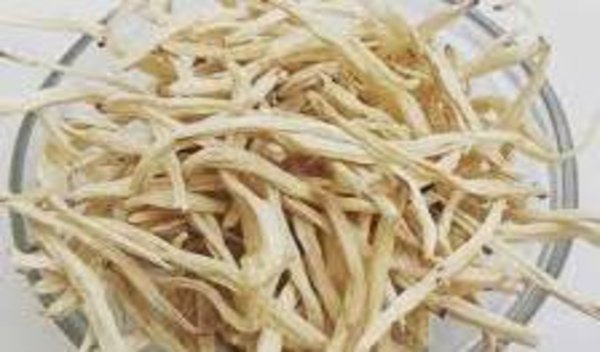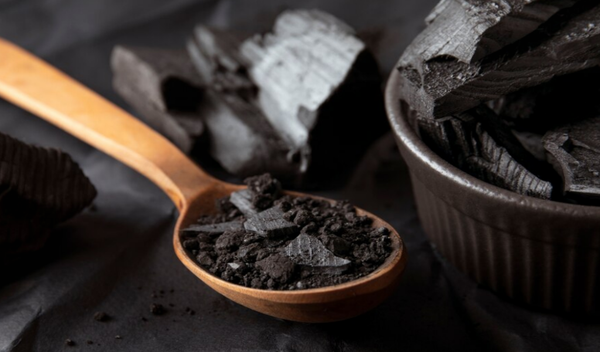It's normal to struggle to maintain firmness or an erection periodically, but if you experience persistent problems that interfere with your sexual performance, you may have erectile dysfunction. While ED is more common in older men, it is also becoming more common in many younger men these days. It can be controlled or treated in a variety of ways. Gaining awareness can aid in addressing the underlying problem and improving the outcome. In today's post, we'll define erectile dysfunction (ED) and discuss treatment options.
Definition
Erectile dysfunction (ED) is a medical condition characterized by the persistent inability to achieve or maintain an erection sufficient for satisfactory sexual performance.
Pathophysiology Of Erections
Before we jump to the causes of erections, let us understand how and when erections occur. Erection happens after a mental or sensory stimulus. The brain senses stimulation and sends signals to the penile muscles to relax. These relaxed muscles allow an increase in blood flow to the penis. The blood flow is then trapped inside by valves, creating pressure that leads to an erection.
Causes
Various factors, including physical conditions such as cardiovascular disease, diabetes, hormonal imbalances, and neurological disorders, may cause erectile dysfunction.
Medical Conditions
- Neurological disorder: Neurological disorders disrupt nerve signals crucial for erectile function, contributing to erectile dysfunction by hindering blood flow and arousal mechanisms.
- Diabetes: Diabetes can impair blood vessel and nerve function, leading to erectile dysfunction by affecting penile blood flow and neurological responsiveness.
- Prostrate disorders/surgery: Prostate disorders or surgery can damage nerves and impair blood flow, contributing to erectile dysfunction by disrupting normal physiological processes.
- Vascular disease: Vascular disease or conditions like atherosclerosis can restrict blood vessels, compromising blood flow to the penis and impairing erectile function.
Aging
Aging may cause diminished vascular and neural function, impacting erectile tissue. Hormonal changes contribute to age-related erectile dysfunction.
Smoking
Smoking damages blood vessels and reduces blood flow, contributing to erectile dysfunction by impairing vascular health and compromising erectile tissue.
Alcohol abuse
Alcohol acts as a central nervous system depressant, impairing the transmission of signals necessary for arousal and response, thereby contributing to ED.
Drug Abuse
Drugs, especially those with vasoconstrictive properties, obstruct blood flow to the penis. Additionally, substance abuse often correlates with psychological issues like anxiety and depression, further exacerbating ED.
Stress
Stress triggers sympathetic nervous system activation, causing vasoconstriction and hindering blood flow to the penis. Psychological factors, such as anxiety and performance-related stress, further contribute to ED by disrupting the intricate interplay between the brain and sexual response.
Medication side effects
Antidepressants, antihypertensives, and anti-anxiety drugs may impact neurotransmitter levels and alter blood flow, hindering the physiological processes involved in erections. Diuretics and beta-blockers may affect vascular function, compromising blood flow to the penis. Medications with side effects of fatigue or sedation can also indirectly contribute to ED.
Strained Relationship
Stress, resentment, unresolved conflicts within a partnership, and emotional distress often trigger the release of stress hormones, impacting the delicate balance of neurotransmitters and blood flow essential for erections.
Depression
Depression significantly contributes to erectile dysfunction (ED) by altering neurochemical balance and reducing sexual motivation. The serotonin imbalance associated with depression may interfere with the release of nitric oxide, a critical factor in penile vasodilation. Moreover, the use of antidepressant medications, particularly selective serotonin reuptake inhibitors (SSRIs), can also have side effects impacting sexual arousal and performance.
Solution
ED treatment depends on the underlying cause, such as rectifying a sedentary lifestyle, eating a clean and balanced diet, weight and vascular disease management, and supplement support.
Exercise
Exercise helps vascular health by improving blood circulation, an essential factor for erectile function. Few studies have also proven that moderate to vigorous exercise improves erectile dysfunction, while regular exercise and less strenuous workouts may also help in reducing the risk of Erectile dysfunction.
Diet
Adopting a healthy diet can significantly address erectile dysfunction (ED). A diet rich in fruits, vegetables, whole grains, lean proteins, antioxidants, and healthy fats supports cardiovascular health, reducing the risk of vascular issues contributing to ED. Additionally, limiting processed foods, saturated fats, and excessive sugar intake prevents obesity and diabetes, common risk factors for ED.
Weight Management
Obesity tends to amplify two significant causes of Erectile Dysfunction: Vascular disease and Diabetes. Weight loss may help reduce the risk for these two conditions, thereby preventing and improving Erectile Dysfunction.
Vascular Disease Management
Vascular disease management significantly aids in alleviating erectile dysfunction (ED) by addressing circulatory issues. Conditions like atherosclerosis can hinder blood flow to the penile arteries, affecting erectile function. Lifestyle changes, including exercise and a heart-healthy diet, enhance vascular health, promoting improved blood circulation. Medications such as phosphodiesterase type 5 (PDE5) inhibitors facilitate vasodilation, and so they are used to treat hypertension. The same medication may be used to treat ED by supporting enhanced blood flow to the penis.
Supplement support
Certain herbs and minerals, such as Shilajit and Ginkgo Biloba, may aid in further relieving ED symptoms by acting as testosterone boosters. They are often explored as potential interventions for erectile dysfunction (ED), given the hormone's role in sexual health. You may get access to this testosterone booster online in the form of shilajit supplements. Some of these best shilajit supplements are sourced from the Annapurna range of mountains and contain more than 75% fulvic acid.
Lifestyle
Adopting a healthier lifestyle is pivotal to addressing erectile dysfunction (ED). Eating a healthy, balanced diet, exercising regularly to improve vascular health, quitting smoking, and restricting alcohol consumption positively impact vascular health and neurological function. Sufficient sleep and stress management alleviate psychological factors associated with ED.
Wrapping Up
Erectile dysfunction (ED) is a prevalent condition with multifaceted origins, including physical, psychological, and lifestyle factors. Some of the best ED treatments involve a holistic approach: prioritizing cardiovascular health through exercise and a heart-healthy diet, managing stress, and addressing psychological aspects. Lifestyle modifications, including weight management and the cessation of smoking, contribute significantly. Medications may offer short-term relief, but a sustainable strategy involves long-term lifestyle changes. Open communication with healthcare professionals is crucial for personalized solutions, empowering individuals to take charge of their sexual health and effectively address the complexities of erectile dysfunction.
References
https://www.ncbi.nlm.nih.gov/books/NBK562253/
https://www.niddk.nih.gov/health-information/urologic-diseases/erectile-dysfunction/treatment
https://www.nhs.uk/conditions/erection-problems-erectile-dysfunction/
https://www.health.harvard.edu/mens-health/5-natural-ways-to-overcome-erectile-dysfunction
https://my.clevelandclinic.org/health/articles/10036-erection



























